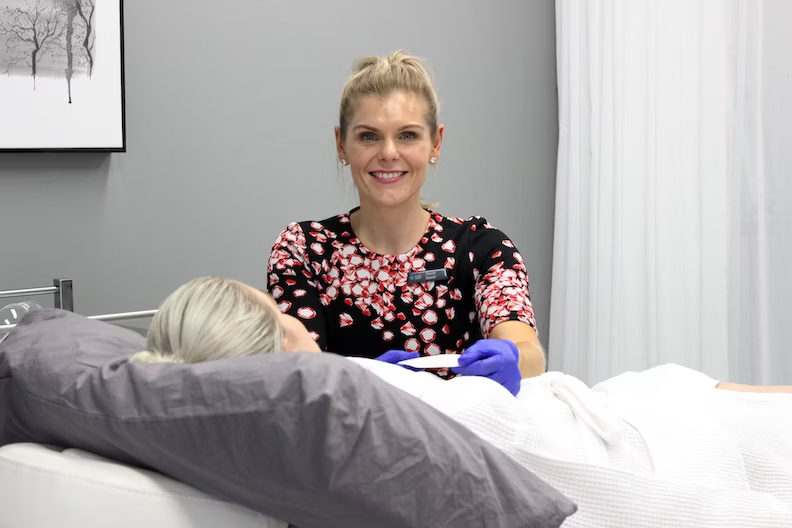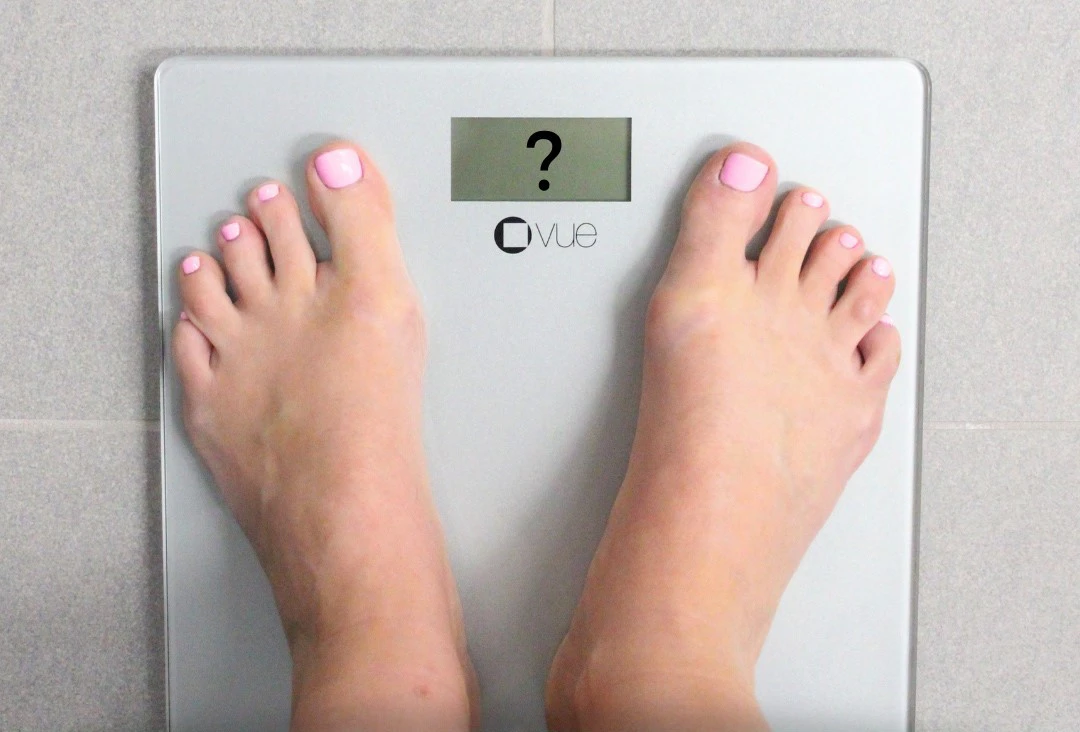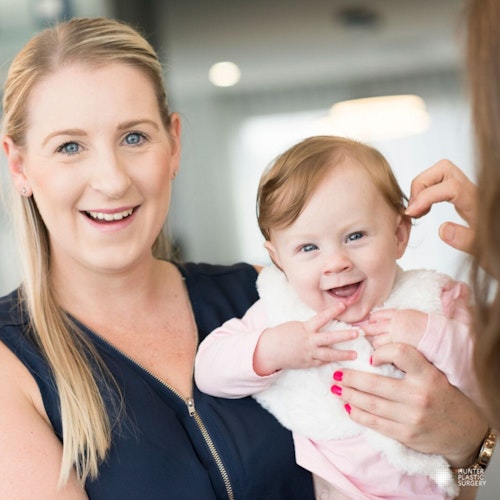“What happens if I put on weight after plastic surgery?” is a common question that we receive from our patients, especially after indulging over the holiday period!
We know just how much work it takes to reach your goal weight prior to surgery, but just as important to achieving an incredible long-term surgical result with Dr Moncrieff is maintaining your goal weight after surgery.
Fallen off the bandwagon? It’s okay, life happens! Here is what you need to know about weight gain after plastic surgery.
Will weight gain impact my surgical results?
In most cases, yes. It is important to remember that plastic surgery is not a substitute for weight loss, and weight gain or major weight fluctuations after surgery can have an impact on your surgical results.
Here are the answers to some of the most common questions we are asked about weight gain.
First of all, have you really put on weight?
If you are less than 12 weeks post-op, and you have been careful with your diet, it is less likely that you have ‘put on’ much actual weight – you are more likely experiencing post-surgical bloating and swelling (click for more about this and how to manage it here).
Swelling, bloating, stomach discomfort and distention are all very common after breast and body surgery, and may even impact the scales – but it will subside significantly by the 12-week mark and continue to improve in the months following.
What will my tummy tuck look like if I gain weight?
While it is completely normal to fluctuate in weight by 5kg or so, major weight gain or pregnancy after a tummy tuck surgery can significantly impact your surgical results. Weight gain following tummy tuck surgery essentially places internal pressure from fat under the muscles against the suture line and tightly repaired muscles. Not only can this cause a ‘barrel’ like appearance to the abdomen, but you may also notice your hips and back begin to look fuller in comparison to your tight tummy.
What about weight gain after breast surgery?
Significant weight gain or fluctuation can also impact your breast surgery.
For breast reduction patients, weight gain will often increase the overall size of the breasts – the total opposite of the objective we are hoping to achieve with breast reduction surgery!
For breast augmentation patients, often weight gain results in the breasts ‘drooping’ or ‘sagging’ over time as the skin is forced to stretch even further to accommodate for the increased fat cells.
Can fat return after liposuction?
Dr Moncrieff regularly includes liposuction in his tummy tucks, breast reductions and fat transfer. But it is important to note that the fat cells removed during liposuction are gone for good, the remaining fat cells will increase and decrease in size with weight fluctuation. So it is not a ‘get out of jail free’ card!
What happens to my scars if I put on weight after surgery?
Rapid weight gain will create extra tension on the suture lines which can compromise healing and lead to stretched scars. Another reason to try to keep your weight stable.
Getting back on the bandwagon
Maintaining a healthy, active lifestyle is key to maintaining your surgical results. Ensuring your nutrition and exercise regime reflect your weight loss goals will be key to working your way back to your pre-surgical weight. It may be worthwhile to speak to your GP or a qualified dietician about weight loss management to aid you on your journey.
Struggling to return to exercise after plastic surgery?
Most patients will receive full clearance to return to exercise at 12 weeks post-op. For some patients, returning to exercise can be difficult following major breast or body surgery. Even if you were a certified gym-junkie prior to surgery, your body will be deconditioned from taking time off during your recovery period.
If you are struggling to return back to your regular exercise regime, you may consider utilising physiotherapy to help get you back on your feet. Many of our surgical patients work with the amazing team at Next Gen Physio Kotara in both their pre and post-operative period.
Will I require revision surgery to correct my results after weight gain?
If your surgical outcome has been impacted by weight gain and you are now seeking revision surgery, Dr Moncrieff will ask you to return to your pre surgery weight, less the amount removed in surgery, in order to assess the surgical results accurately.
As an example, Patient X underwent a tummy tuck with her weight sitting at 70kg. During surgery, Dr Moncrieff removed 5kg of excess fat and skin. After surgery, Patient X’s ‘true weight’ is then 65kg.
Six months post-surgery, Patient X attends her follow-up appointment with Dr Moncrieff and advises she has put on about 10kg since surgery, so now weighs 80kgs. However, since Dr Moncrieff removed 5kg of fat and skin during her operation, really she has put 15kg – enough weight gain to significantly impact her surgical results.
In majority of cases like these, revision surgery is not required – weight loss is required in order to revert back to the original surgical result.
What weight should I be before plastic surgery?
Dr Moncrieff likes to see patients within the “healthy” or somewhat “overweight” category of body mass index calculations. BMIs at or under 28 are ideal for breast and body surgery.
Due to the risks associated with surgery, Dr Moncrieff does not operate on patients with a BMI of 30 or over.
For breast augmentation surgery, a BMI at or below 25 is preferred for safety and a beautiful outcome that will last.
Click here to find out your BMI.
Even if you are already have a BMI lower than 30, it may still be more than your goal. Again, the results are better from surgery the closer you are to your sustainable goal weight. More information about why weight matters when it comes to plastic surgery can be found here.
How do I ensure I get the most out of my plastic surgery results?
To get the best long-term results from your plastic surgery procedure, it is essential that you reach your ideal goal weight prior to surgery and ensure you can maintain that weight for a minimum of six months. This will ensure you have the best possible chance of maintaining a steady weight after surgery. More information about how to get the best long term results from your plastic surgery is here.
Have a question for our team about weight gain after plastic surgery?
We’re here to help. Please do not hesitate to contact one of our friendly team on 4920 7700.
More blogs you may be interested in:
- Why weight matters in plastic surgery
- How to get the best long term results from plastic surgery
- Plastic surgery after mass weight loss
- Common patient questions after breast and body surgery
- How soon can I exercise after plastic surgery?
- Minimising scars from plastic surgery

Blog Author:
Alecia Baker, Practice Nurse, Hunter Plastic Surgery
About Alecia
Alecia joined us as our Practice Nurses in 2018. She is a Registered Nurse with extensive experience in nursing and patient management in some of the busiest hospital settings in the Hunter! She really cares about helping our patients become healthy and happy. Her kind and calm manner help them feel comfortable during their journey with us.



